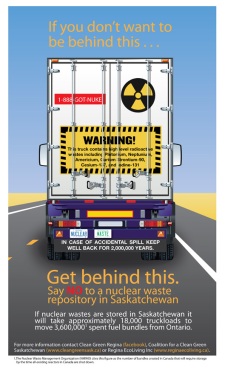By Terrence Mceachern
Leader-Post
November 2, 2011
Photographs by: Bryan Schlosser
 |
| Betty Pickering, retired SGEU staff (right) |
Betty Pickering said she was shocked on Friday when she found out her pension payments were going to be reduced by twice the amount that was originally agreed to by her former employer in February.
“The reduction we took was hard enough to swallow. And then to say you’re going to have to take a double reduction is absolutely impossible,” said Pickering, 63, who retired from the Saskatchewan Government and General Employees’ Union (SGEU) in 2004 after a 20-year career.
“We shouldn’t be asking people who live on a fixed income to do this. Everything else for our cost of living is increasing. Now we’re asked to take a reduction — that’s disgraceful, absolutely disgraceful,” she said.
After 40 former employees filed a class-action lawsuit against the union earlier this year, a deal was reached in mediation on Feb. 26, said Pickering. But after hearing the news of further pension reductions on Friday, Pickering and 20 supporters and former colleagues protested in front of SGEU’s Regina office Wednesday morning calling for new provincial legislation protecting pensions.
“Clearly SGEU needs to stick to the deal that was made. We will take the reduction we agreed to in mediation, not a penny more,” said Pickering.
She said she wasn’t able to divulge the amount SGEU was planning to reduce their pension because the matter was agreed to in mediation. She said during the group’s discussions with SGEU, the union blamed the market for the need to further reduce their pensions.
Bob Bymoen, president of SGEU, agreed the markets led to changes to the pension but denied SGEU reneged on the deal. Bymoen said the situation is unfortunate, but explained that disagreements between the former staff and SGEU over shared contributions led to the pension plan being “wound down.” The plan would be used to purchase annuities, or financial products that pay the individual a fixed amount of money over time. Even though the annuities are only scheduled to be purchased in the next couple of months, the value of the pension is forecasted to be lower because the market is declining, he said.
“That’s going to have a net result of a lower pension, it’s not that anybody’s waffling on an agreement, it’s just what is happening around us is putting stress on the plan,” said Bymoen. He estimated the pension plan’s value could be reduced as much as 15 per cent, based on current figures.
Later in the day, the protest moved to downtown Regina in front of Dave Wild’s office. Wild, the superintendent for pensions for the Government of Saskatchewan, said he has sympathy for the retirees, but that this is a matter between them and the SGEU.
“They were expecting to enjoy greater pensions than they are going to receive, but it is essentially a private contractual matter,” he said.
Pickering, who serves as president of the Saskatchewan Federation of Union Retirees, said the matter is being evaluated and that further legal action could follow, but she added that paying legal fees is a serious concern given that the retirees are on a fixed income.



 Be it resolved that the Green Party of Saskatchewan support the concept of just transition for all workers currently working in unsound industries and publicly discuss the concept of just transition as a way of taking workers into the new sustainable economy.
Be it resolved that the Green Party of Saskatchewan support the concept of just transition for all workers currently working in unsound industries and publicly discuss the concept of just transition as a way of taking workers into the new sustainable economy.

 We could finish this election campaign without serious issues even being raised, which isn’t the way to practice democracy. One such issue is whether thousands of truckloads of highly radioactive nuclear wastes will be brought from Ontario’s nuclear plants to a nuclear dump in our north.
We could finish this election campaign without serious issues even being raised, which isn’t the way to practice democracy. One such issue is whether thousands of truckloads of highly radioactive nuclear wastes will be brought from Ontario’s nuclear plants to a nuclear dump in our north.